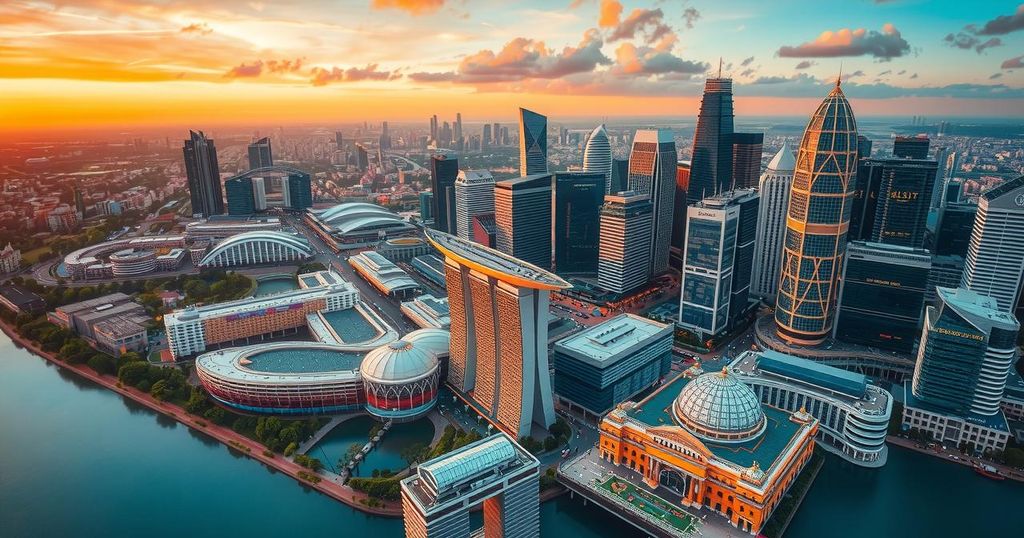Singapore Elections: The Margin of Victory Takes Center Stage

Singapore’s upcoming election is under scrutiny not just for who will win, but the margin of victory for the ruling People’s Action Party. Facing rising discontent over the cost of living, the opposition Workers’ Party is gaining prominence. Analysts suggest this election could signal a demand for political change amidst a backdrop of global economic uncertainty.
The upcoming elections in Singapore are drawing attention, not just for the anticipated outcome but for the margins by which the People’s Action Party (P.A.P.) will secure victory. The P.A.P. has dominated Singaporean politics since 1959, yet an air of discontent is now permeating the populace, notably concerning the government’s handling of pressing socioeconomic issues.
This election occurs against the backdrop of a global crisis. Five years ago, the P.A.P. projected itself as a stabilizing force during the substantial upheaval of the pandemic. Today, in light of shifting international trade dynamics, the party is making a similar appeal. Observers expect the P.A.P. to maintain its rule, but the latest polls indicate growing dissatisfaction among voters, particularly regarding rising living costs.
Political analysts are suggesting that opposition forces are gaining traction in Singapore. The Workers’ Party, the primary opposition, has seen substantial rallies, attracting large crowds and selling out campaign merchandise. Pritam Singh, the leader of the Workers’ Party, has stressed that while his party is not contesting enough seats to outright govern, there is a need for a more balanced political landscape.
At the Workers’ Party’s rally, Mr. Singh emphasized the importance of having an opposition in Parliament. “When you have opposition in Parliament, your alternative voice is heard by the government,” he stated, urging citizens to become active participants in the democratic process.
This election could serve as a referendum for change, especially following the recent transition in leadership to Prime Minister Lawrence Wong, who took the reins after the long-serving Lee Hsien Loong. Mr. Wong has pointed to his established relationships with global powers as a key strength for navigating complex geopolitical landscapes.
P.M. Wong reiterated the historic P.A.P. narrative: the party has consistently delivered stability and prosperity in Singapore, a nation that boasts a high per capita income among global competitors. The eyes of analysts and voters alike are on how close the opposition will come to challenging the long-standing political order. As election day approaches, the focus is not merely on who will be the winner, but rather how close the opposition can come to narrowing the margins.
In summary, Singapore’s elections highlight significant underlying tensions between the ruling P.A.P. and the rising opposition, particularly the Workers’ Party. While the P.A.P. is expected to remain in power, the level of competition and voter dissatisfaction regarding economic issues could signal a shift in the political landscape. This election could reflect the public’s desire for a more vibrant democracy, with a keen eye on just how much the margins may shrink from previous years.
Original Source: www.nytimes.com






